7 Best Alternatives to Canvas LMS for Corporate Training in 2025 (Ranked & Reviewed)
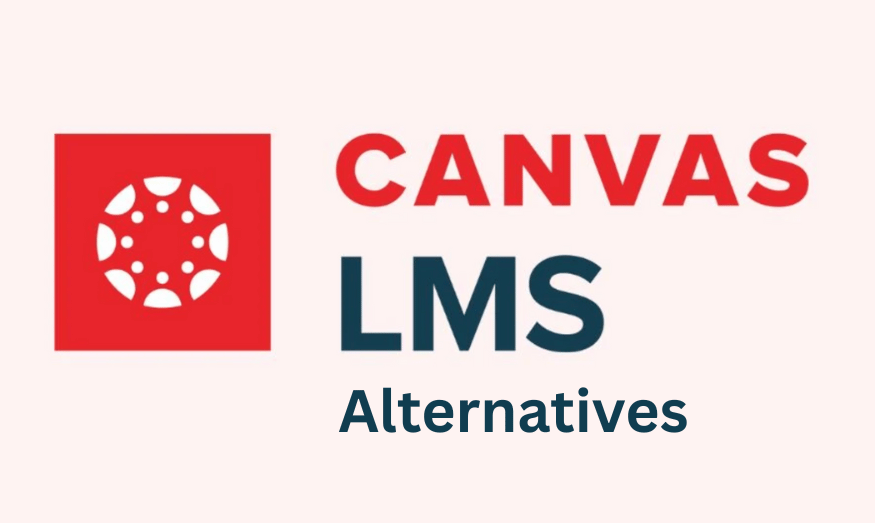
Introduction
Canvas LMS is one of the most popular learning management systems in the education space. Designed primarily for schools and universities, Canvas offers features like course creation, grading tools, and student collaboration. However, when it comes to corporate training, many organizations find Canvas too academic-focused, complex to customize, and expensive to maintain.
If you’re a business looking for a Canvas alternative that’s designed for workforce learning — compliance, onboarding, employee upskilling, and enterprise-scale training — then this guide is for you.
In this blog, we compare the 7 best alternatives to Canvas LMS for corporate training in 2025, including their features, pros, cons, pricing, and ratings. And yes — we put Calibr at the top, since it’s built specifically for the modern workforce.
Why Not Stick With Canvas LMS for Corporate Training?
Disadvantage | Explanation |
|---|---|
Academic Focus | Built for schools, not enterprises. |
Complex Customization | Requires technical expertise and plugins. |
Limited Corporate Features | Lacks compliance tracking and workforce integrations. |
Higher Cost for SMBs | Pricing often doesn’t scale well for smaller companies. |
Steep Learning Curve | Non-educational users find it less intuitive. |
1. Calibr (Our Top Pick)
Calibr is a modern, AI-powered Learning Management System built specifically for corporate and workforce training and is our top pick as a Moodle alternative. It offers drag-and-drop course creation, ready-to-use compliance templates, gamification, analytics dashboards, and seamless HR integrations. Designed for ease of use and rapid deployment, Calibr scales effortlessly from SMBs to large enterprises, making it a top choice over traditional LMS platforms like Moodle.
Best for: Companies that want a future-ready, AI-powered LMS for workforce training.
Key Features
AI-driven personalization for employees
Ready-to-use compliance & onboarding templates
Drag-and-drop course creation (SCORM, videos, docs)
Analytics dashboards for L&D and HR
Gamified learning (badges, leaderboards)
Integrations with HRMS.
Pros
Designed exclusively for corporate learning and compliance training
Extremely user-friendly compared to Moodle
Fast setup — cloud-based, no hosting hassles
Excellent customer support
Scales effortlessly from SMBs to 10,000+ employees
Cons
Newer in the market compared to legacy LMS platforms (but fast-growing)
Fewer third-party plugins than Moodle (offset by native integrations)
💰 Pricing
Starts at ₹75 per employee/month (scales with workforce size)
⭐ Rating
4.8 / 5 (G2, Capterra user feedback consolidated)
Why Calibr over Moodle?
Moodle was built for universities. Calibr is a AI-powered LMS built for modern businesses. Faster, lighter, and AI-powered — it helps companies launch training programs in days, not months.
2. TalentLMS
TalentLMS is good Moodle alternative. It is a cloud-based, user-friendly learning management system ideal for small to mid-sized businesses. It offers mobile-ready courses, SCORM and xAPI support, and easy course creation with custom branding. While simple to deploy and manage, it has limited advanced reporting and customization compared to enterprise-grade LMS platforms.
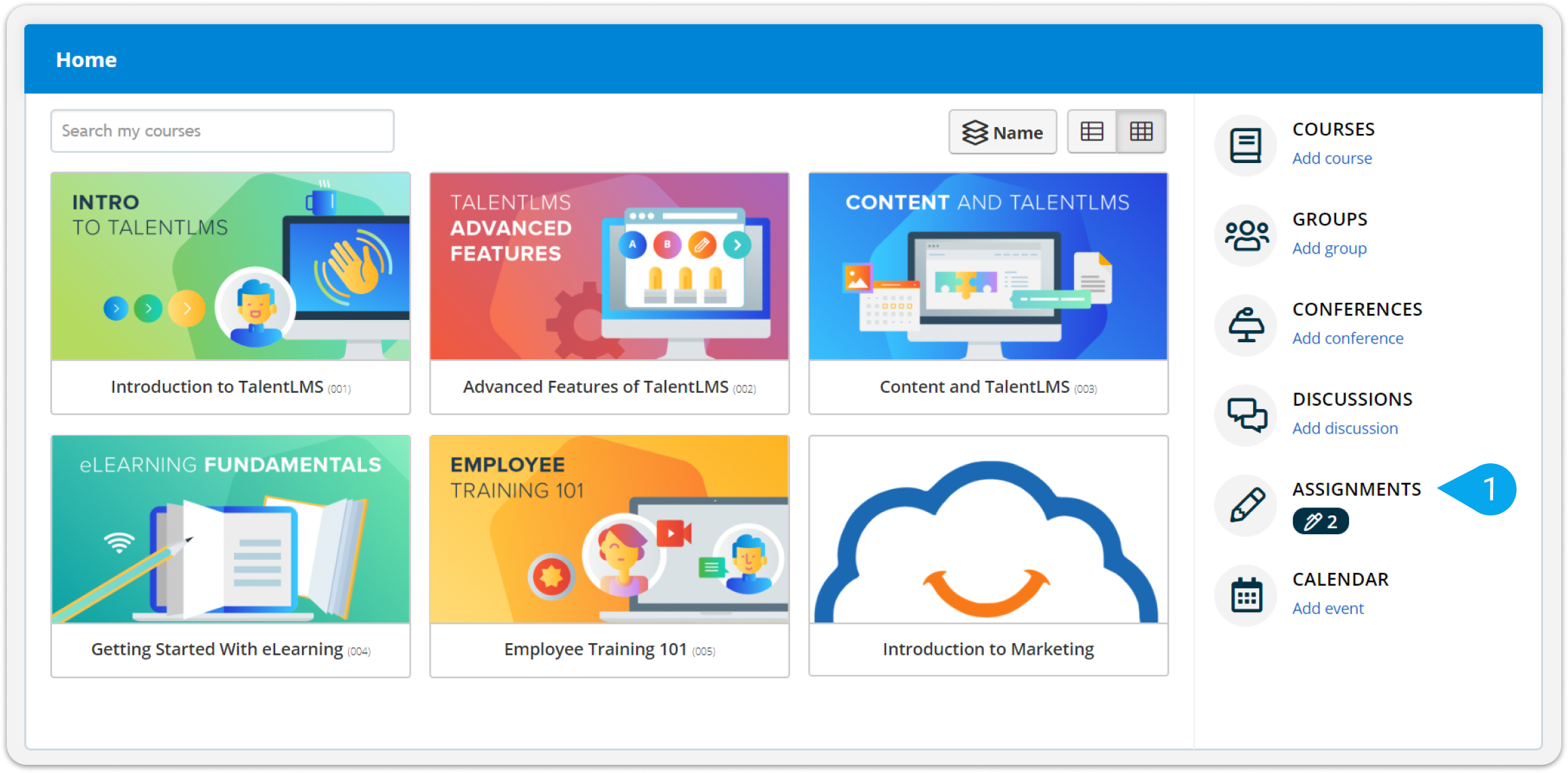
Best for: SMBs needing a lightweight LMS with good UX.
Features
Simple, cloud-based setup
Mobile-friendly learning
Supports SCORM, xAPI
Custom branding
Pros
Easy to deploy and manage
Clean interface
Affordable for small teams
Cons
Limited advanced reporting
Not ideal for large enterprises
Basic customization compared to Moodle
💰 Pricing
Free for up to 5 users
Paid plans start at $69/month for 40 users
⭐ Rating
4.7 / 5 (Capterra)
3. Docebo
Docebo another Moodle alternative, is an AI-powered, enterprise-grade LMS designed for large organizations seeking scalable corporate learning. It features personalized learning paths, multi-language support, social learning tools, and robust integrations with HR and business systems. While highly scalable and feature-rich, it comes with a steeper learning curve and higher cost compared to simpler LMS platforms.
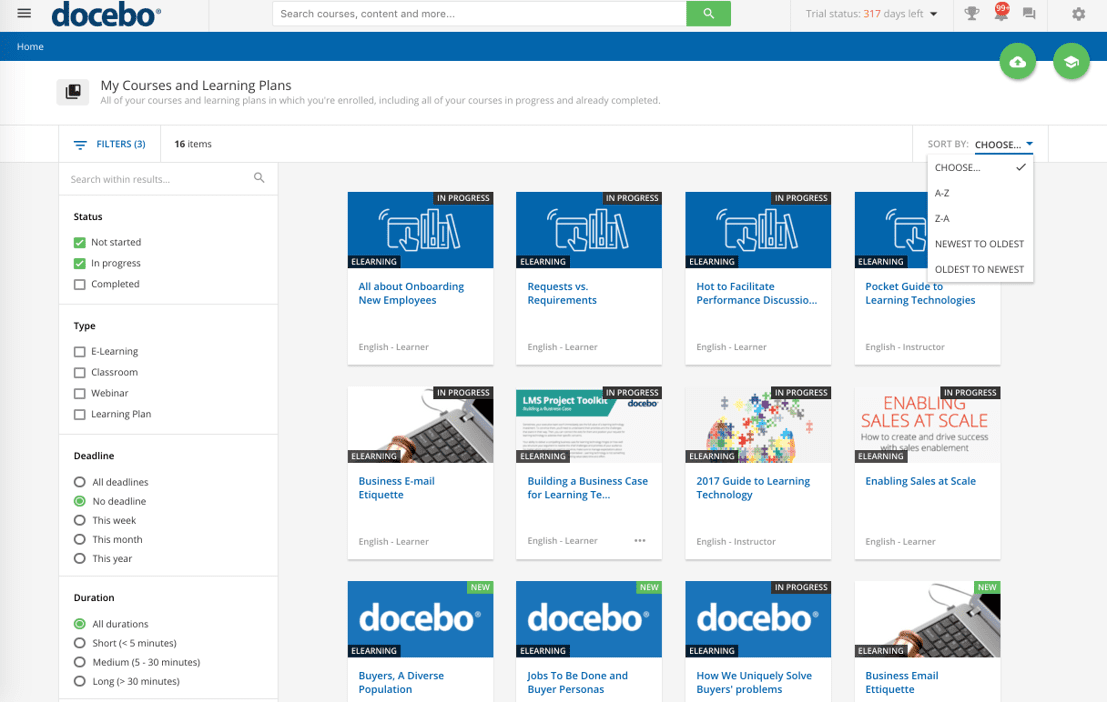
Best for: Enterprises seeking AI-driven corporate learning.
Features
AI-powered recommendations
Multi-language support
Extensive integrations
Social learning features
Pros
Strong enterprise-grade analytics
Robust integrations
Excellent scalability
Cons
Expensive compared to Moodle
Steeper learning curve
💰 Pricing
Custom pricing (usually starts around $25,000/year)
⭐ Rating
4.5 / 5
4. SAP Litmos
SAP Litmos is a cloud-based LMS designed for enterprises with global training needs and could be a good Moodle alternative. It offers compliance-ready templates, gamification, assessments, and SCORM/xAPI support, making it ideal for structured corporate learning. While trusted by large organizations, its user interface can feel dated, and pricing may be high for small to mid-sized businesses.
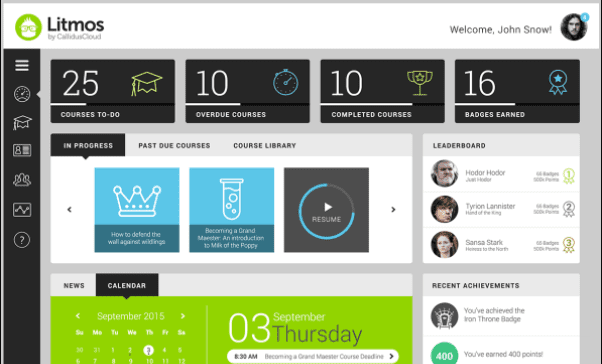
Best for: Enterprises with global training needs.
Features
Cloud-based LMS
Compliance-ready templates
Gamification & assessments
SCORM/xAPI support
Pros
Trusted by large enterprises
Strong compliance tools
Global reach
Cons
UI feels dated
Expensive for SMBs
Limited customization
💰 Pricing
Custom quotes (typically higher-end)
⭐ Rating
4.2 / 5
5. Absorb LMS
Absorb LMS, another Moodle alternative, is a flexible, scalable learning management system suitable for mid-to-large enterprises. It offers AI-driven learning recommendations, robust reporting, eCommerce integration, and SCORM/xAPI support. While it provides a modern and attractive user interface, some users find the admin interface complex, and pricing is higher than simpler LMS platforms.
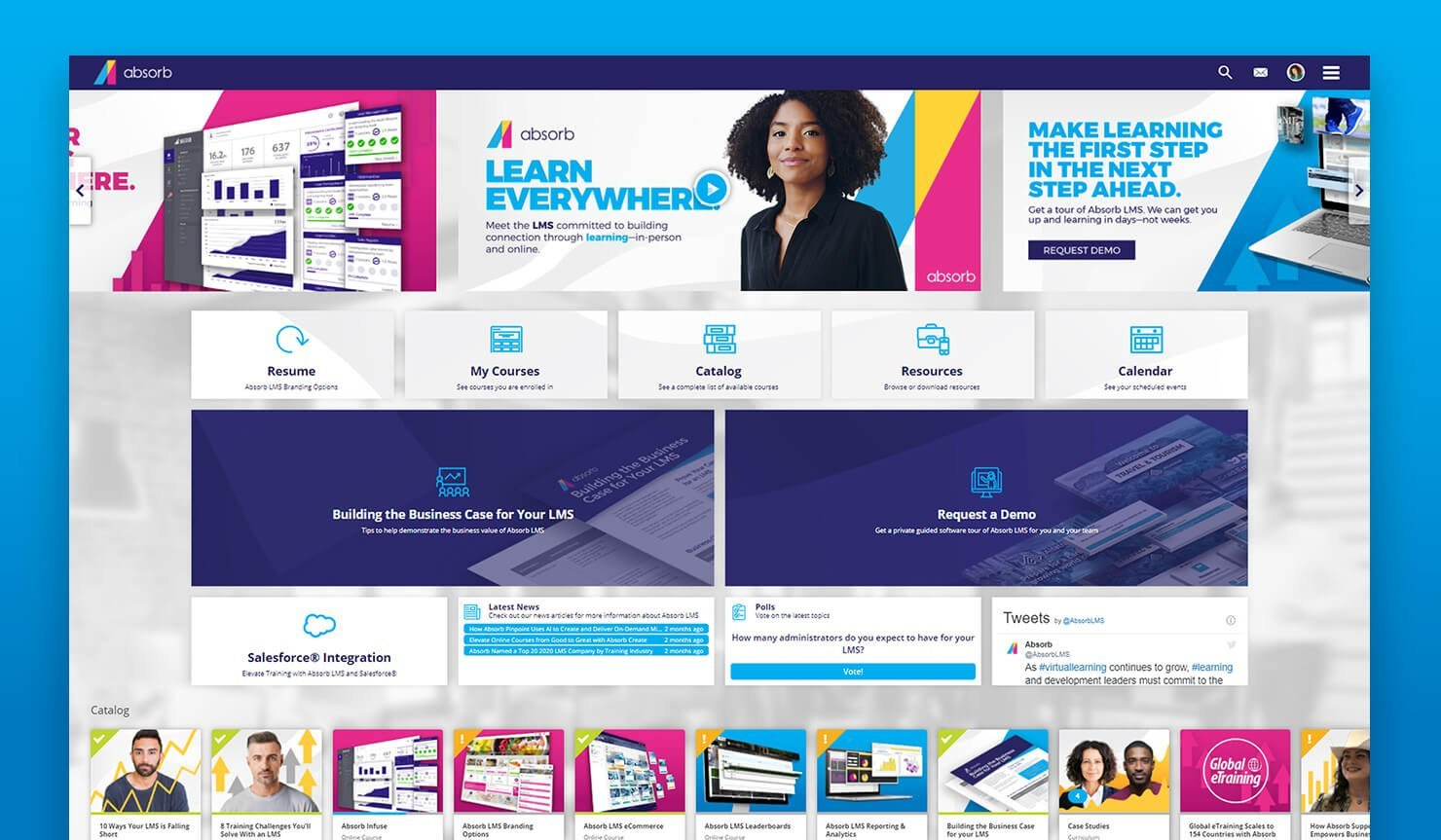
Best for: Mid-to-large enterprises wanting flexibility.
Features
AI-driven recommendations
eCommerce integration
Reporting & analytics
SCORM/xAPI support
Pros
Good scalability
Strong customer support
Attractive UI
Cons
Pricing on the higher side
Some users report admin complexity
💰 Pricing
Custom pricing, usually per active user/month
⭐ Rating
4.5 / 5
6. Cornerstone OnDemand
Cornerstone OnDemand is an all-in-one LMS and talent management platform designed for large enterprises. As a Moodle alternative it offers compliance training, mobile access, deep HR integrations, and robust reporting tools. While ideal for complex workforce learning needs, it has a steeper learning curve, a more complex user interface, and higher pricing compared to simpler LMS alternatives.
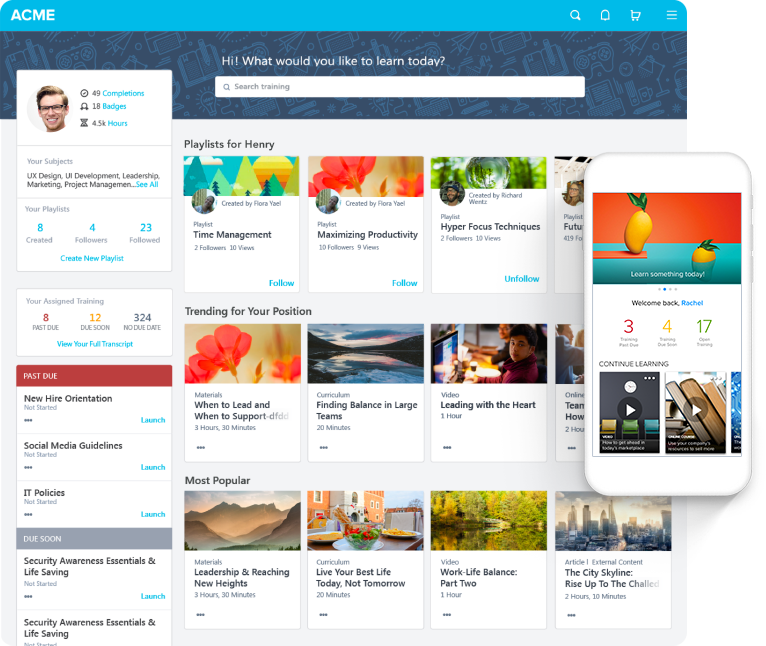
Best for: Enterprises needing HR + Learning suite.
Features
LMS + Talent Management
Compliance training
Mobile access
Deep HR integrations
Pros
All-in-one HR + learning solution
Great for compliance-heavy industries
Widely adopted in enterprise
Cons
Complex UI
Expensive and requires long onboarding
💰 Pricing
Enterprise-level pricing (higher than Moodle)
⭐ Rating
4.3 / 5
7. LearnUpon
LearnUpon, a popular Moodle alternative, is a cloud-based LMS ideal for organizations delivering training to multiple audiences, including employees and customers. It offers multi-tenant capabilities, SCORM/xAPI support, robust reporting, and a mobile-first design. While easy to deploy and use, it has limited customization compared to Moodle and some enterprise-grade LMS platforms.
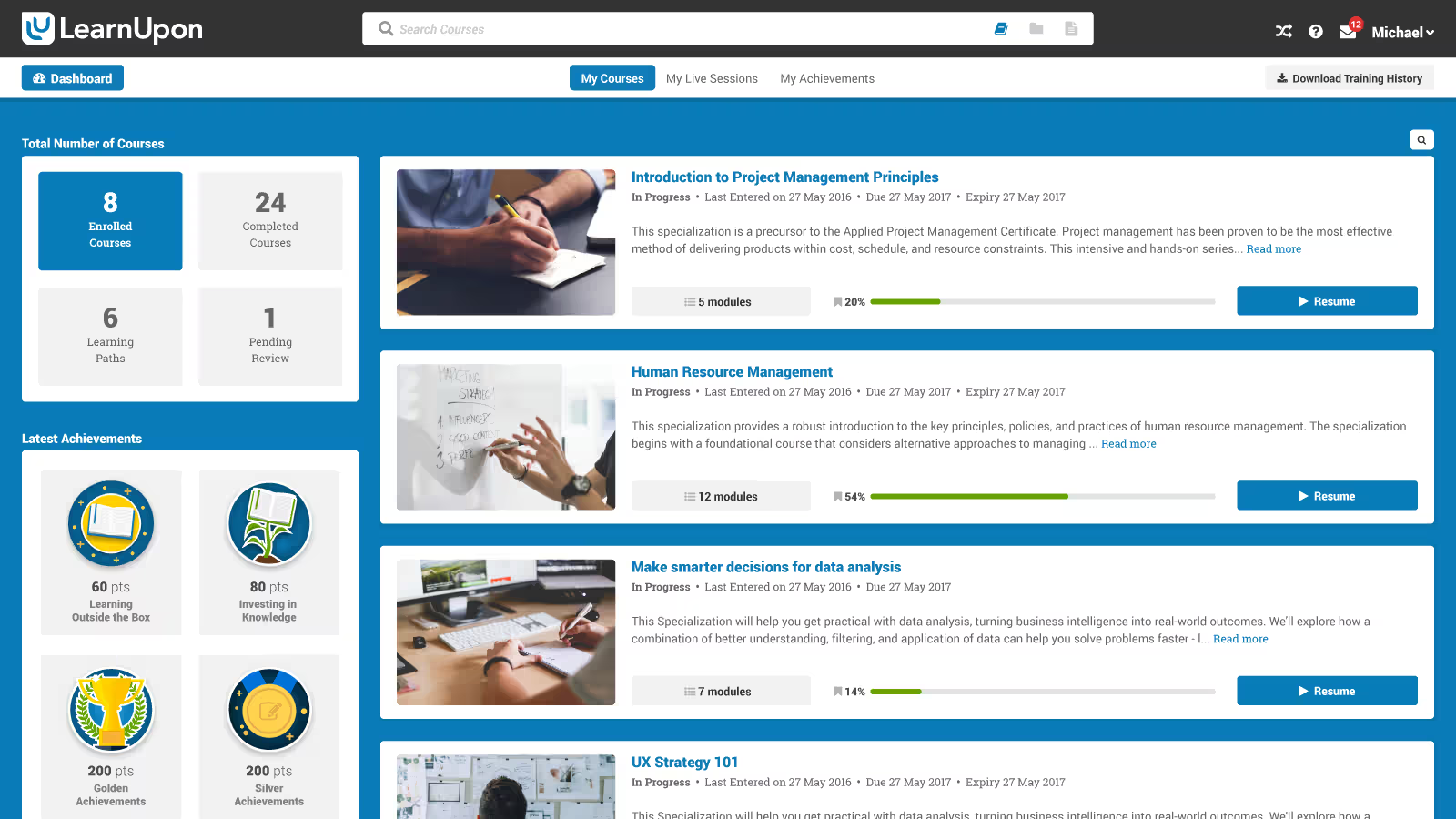
Best for: Organizations with multiple audiences (internal + external training).
Features
Multi-tenant capabilities
SCORM/xAPI support
Good reporting tools
Mobile-first design
Pros
Great for training employees + customers
Clean design
Fast deployment
Cons
Limited customization compared to Moodle
Lacks deep academic features (good for corporate though)
💰 Pricing
Starts around $699/month for 50 users
⭐ Rating
Frequently Asked Questions (FAQs)
1. Is Canvas LMS good for corporate training?
Canvas works well for education but is less suited for workforce learning. It lacks built-in compliance tools, HR integrations, and advanced analytics.
2. What is the best alternative to Canvas LMS in 2025?
The best alternative is Calibr, as it’s purpose-built for corporate training, compliance, and employee engagement.
3. How do I migrate from Canvas LMS to Calibr?
The process includes exporting courses (SCORM, media), mapping user data, re-uploading content into Calibr, and running pilot rollouts. Calibr offers migration support.
4. Which Canvas alternatives are good for SMBs?
For small to mid-sized businesses, TalentLMS and LearnUpon are affordable, easy-to-use options.
5. Which Canvas alternative is best for compliance training?
Calibr is the best choice for compliance-heavy industries, thanks to mandatory tracking, certifications, and audit-ready reports.
Final Thoughts
Canvas LMS has earned its reputation in the education sector, but for corporate training, it often feels like the wrong fit. Modern businesses need scalable, easy-to-use, compliance-ready LMS platforms that integrate with HR systems and drive employee engagement.
If you’re seeking the #1 Canvas alternative, look no further than Calibr — built specifically for workforce training in 2025 and beyond.

